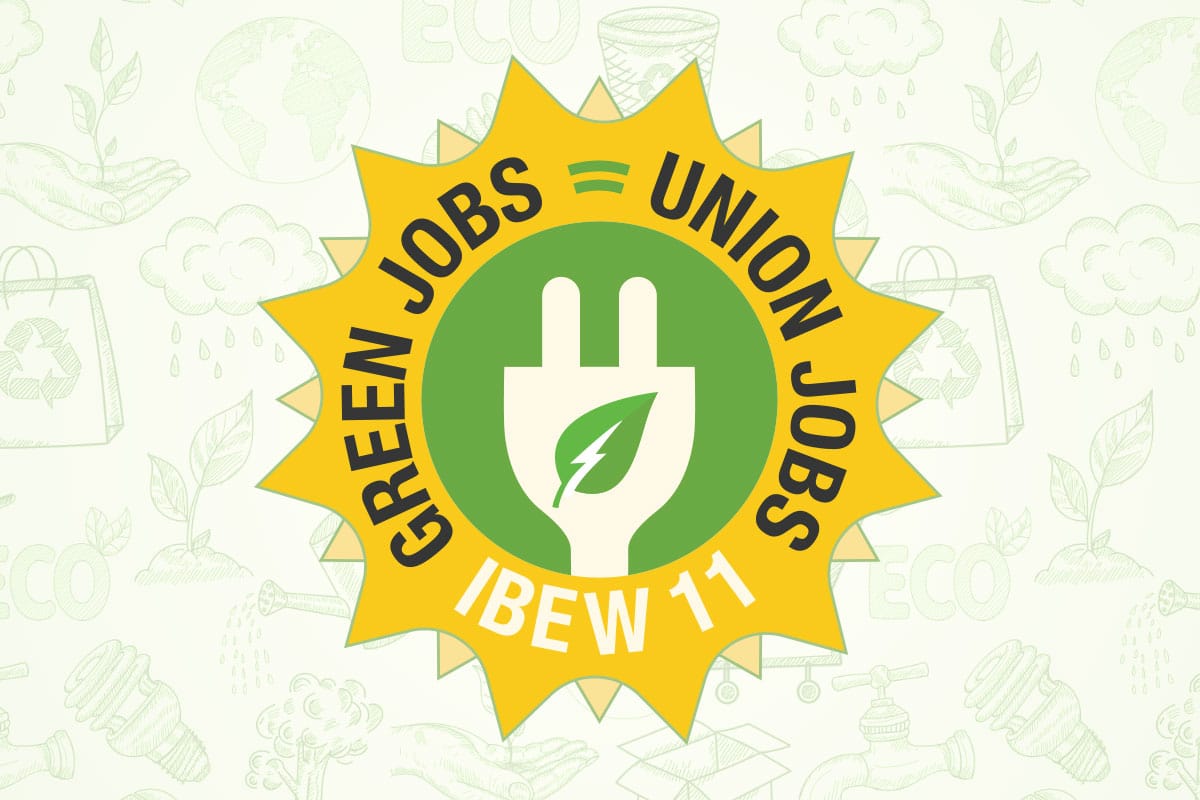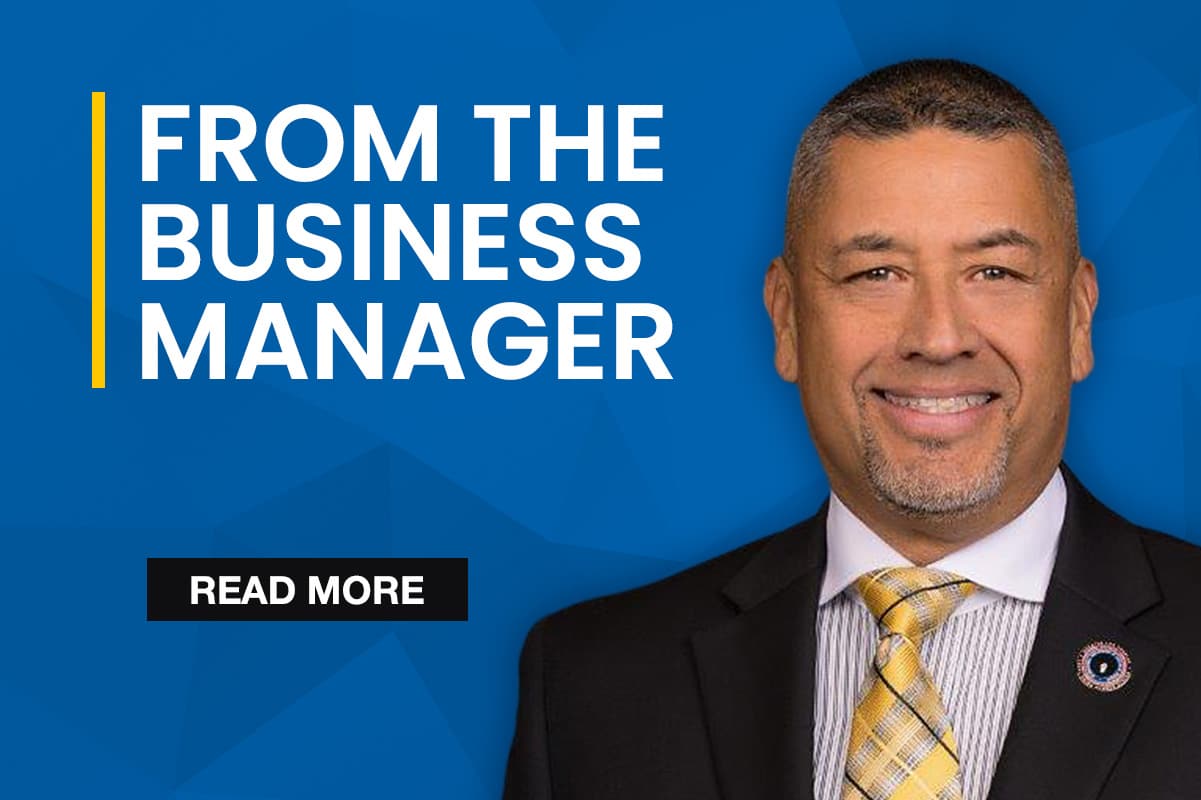IBEW Local 11 - Steps To A Rewarding Electrical Career
Joining a group like the International Brotherhood of Electrical Workers, often known as the IBEW, can feel like stepping into a whole new world of possibilities for a skilled trade. When people talk about IBEW Local 11, they are usually thinking about a place where individuals can build a solid working life, connect with others who do similar things, and find support for their professional growth. It's a big organization, and the local branches, like Local 11, are where a lot of the real day-to-day action happens for those looking to start or grow their electrical career.
For many people, getting involved with a group such as IBEW Local 11 represents a significant step. It’s about more than just finding a job; it’s about becoming part of a community that looks out for its members. People who are looking into this path often share their experiences, thoughts, and questions with each other, perhaps even on online forums where others with similar interests gather. It's a way, you know, for everyone to feel a bit more connected and to get a sense of what the journey might be like before they even begin.
This article will share some real-life stories and insights from people who are either thinking about joining IBEW Local 11 or are already on their way. We'll look at what it’s like to go through the application process, the tests you might face, and the feelings that come with waiting for that important phone call. It’s a personal look at what it takes to become part of this group, offering a glimpse into the everyday experiences of those pursuing a future in the electrical trades, so to speak.
Table of Contents
- What is the IBEW Local 11 Apprenticeship Process Like?
- The Wait and the Call - A Story from IBEW Local 11
- Taking the Test for IBEW Local 11
- How Do You Get Ready for the IBEW Local 11 Aptitude Test?
- Considering Different Paths within IBEW Local 11
- Is a Rank of #32 a Good Score for IBEW Local 11 Sound & Communications?
- Making a Choice - Fire Alarm Work or IBEW Local 11 S&C?
- Community and Connection within IBEW Local 11
What is the IBEW Local 11 Apprenticeship Process Like?
Starting a path to become a wireman with IBEW Local 11 through an apprenticeship involves a series of steps. For someone thinking about this, it can feel like a big decision, especially if you're at a point in your life where you feel it’s time to really get things moving. For example, one person mentioned being 24 years old, soon to be 25, and feeling that urge to make a significant career move. The process itself often begins with an application, followed by a test, and then an interview. It's a structured way to bring new people into the trade, giving them the chance to learn and grow within the IBEW framework, so it's almost like a well-worn path.
People often share their experiences with these initial steps. For instance, someone might talk about taking the entrance exam in June of one year and then having their interview a few months later, perhaps in November. These steps are part of what you go through to show you are ready and able to learn the trade. It’s a system that has been put in place to ensure that those who join are truly interested and have a certain level of readiness for the work ahead. And that, in some respects, is a good thing for everyone involved.
The whole process, from the first application to getting the call, can take a bit of time. It's not something that happens overnight. People who have been through it often talk about the waiting period as a significant part of the experience. It builds up a lot of anticipation, and when that moment finally arrives, it’s a big deal. For anyone considering the wiremen apprenticeship with IBEW Local 11, knowing about these steps and what to expect can help set their mind at ease, or at least prepare them for the journey.
The Wait and the Call - A Story from IBEW Local 11
Waiting for news after you’ve applied and interviewed can be quite a test of patience, you know? One person shared their experience of waiting for a couple of years after their test and interview before getting the call. They took the test in June 2019 and had their interview in November of that same year, but the call for boot camp didn't come until much later. This kind of waiting can make anyone feel a bit restless, wondering when their turn will come. It’s a feeling that often comes from not having a clear idea of the timeline, which can be a little unsettling.
When that call finally does arrive, it brings a wave of excitement. The individual who waited two years expressed being "stoked" to start boot camp, which was set to begin the following week. This feeling of happiness, combined with a sense of relief, is a common reaction after such a long period of waiting. It’s the moment when all that anticipation turns into concrete plans, and you know you’re about to begin a new chapter. It's like, all that time spent wondering finally pays off, which is a really good feeling.
The experience of waiting, and then receiving that call, highlights a very human part of the process of joining IBEW Local 11. It shows that persistence and patience are qualities that often come into play. For many, the desire to start this new path is so strong that they are willing to go through these periods of uncertainty. It's a reminder that good things, sometimes, take a bit of time to come your way, and that's just how it is for some people.
Taking the Test for IBEW Local 11
The aptitude test is a significant part of getting into IBEW Local 11, and it can be a real challenge for some. One person mentioned taking the test and not passing it the first time, which meant they had a retest coming up. This shows that it’s not always a straightforward path for everyone, and that’s perfectly fine. The test itself seems to focus a lot on math, especially word problems that involve working with fractions, converting numbers, and figuring out areas. It’s the kind of math that asks you to think about how numbers apply to real-world situations, which makes sense for a trade like electrical work, you know?
Another person shared their experience of just barely passing the IBEW Local 11 aptitude test, scoring a 70. They felt they weren't ready for the number of mechanical reasoning questions, noting there were at least seven or eight of them. This suggests that while math is a big part, there are other types of questions that test different kinds of thinking. Mechanical reasoning questions often involve understanding how things work, how parts fit together, and how forces interact, which is pretty important for electrical work, too.
These stories about the test show that preparation is a big deal, and that even with preparation, some parts of the test might catch you off guard. It’s a chance for the organization to see if you have the basic skills and the way of thinking that will help you succeed in the trade. For anyone getting ready to take this test for IBEW Local 11, these insights can be helpful in knowing what areas to focus on and what types of questions to expect, so to speak.
How Do You Get Ready for the IBEW Local 11 Aptitude Test?
Getting ready for the IBEW Local 11 aptitude test seems to involve focusing on a few key areas, especially math and mechanical reasoning. Since the math section often includes word problems dealing with fractions and area, practicing these types of questions would likely be a good idea. It’s not just about knowing how to do the math, but how to apply it to a situation described in words. This can sometimes be a bit trickier than just solving equations, as a matter of fact.
For the mechanical reasoning part, which surprised some people with its number of questions, it might be wise to spend some time understanding basic physics principles and how simple machines work. Thinking about how gears turn, how levers lift, or how pulleys operate can help prepare you for those kinds of questions. It's about building a general understanding of how things move and interact in the physical world. This part of the test really tries to see how you think about practical problems, which is quite useful for someone in the electrical field.
Overall, preparing for the IBEW Local 11 test seems to be about more than just memorizing facts. It’s about sharpening your problem-solving skills and getting comfortable with different types of questions. People who have gone through it often suggest that you try to cover all the bases, even the parts that might seem less obvious at first. It’s a way to give yourself the best chance at passing and moving forward in the process, which is what everyone wants, right?
Considering Different Paths within IBEW Local 11
Within IBEW Local 11, there appear to be different paths you can take, and sometimes, you might find yourself weighing one opportunity against another. For example, someone applied for the Sound & Communications apprenticeship program and received a ranking. This shows that there are specific programs for different aspects of electrical work, allowing people to specialize in areas that fit their interests or skills. It’s not just one broad electrical job; there are distinct fields you can go into, which is pretty interesting.
The choice between these paths can sometimes come up unexpectedly. One person, who was ranked #45 for Sound & Communications, also received an offer to become a fire alarm apprentice. This fire alarm role came with an immediate starting wage of $20 an hour and the promise of help getting a NICET 1 certification, plus yearly raises. This kind of offer, with its immediate benefits, can certainly make you think about whether to stick with your original plan or take a different route. It’s a real decision point for many, you know, when these kinds of options appear.
These situations highlight that the journey with IBEW Local 11 can present various opportunities. It’s about figuring out which path makes the most sense for your personal goals and what you want from your working life. Sometimes, an unexpected offer might align better with your immediate needs or long-term aspirations. It’s a good thing, really, to have choices, even if they make you think a bit harder about your next steps.
Is a Rank of #32 a Good Score for IBEW Local 11 Sound & Communications?
When you apply for a program like the Sound & Communications apprenticeship with IBEW Local 11 and get a rank, it's natural to wonder what that number means. One person shared that they got a score and were ranked #32, and they immediately asked if that was a good rank. This question comes up because, without knowing how many people applied or how the ranking system works, a number alone doesn't tell the whole story. It’s like, is #32 a high rank or a low rank in the grand scheme of things? It's hard to say without more information, basically.
The significance of a rank like #32 can depend on several things. For instance, if only 50 people applied, then #32 might not be as strong as if 500 people applied. Also, different programs might have different numbers of openings each year. A rank that seems okay for one year might be less so in another, depending on the demand for apprentices. It’s a situation where the context really matters, and that's something people often try to figure out by asking others who have been through the process, which is why sharing experiences is helpful.
Ultimately, what makes a rank "good" often comes down to whether it leads to an offer for the apprenticeship. Even if a rank seems a bit lower, sometimes things work out if others ahead of you decline their spots. It’s a waiting game, in a way, where your rank gives you an idea of where you stand, but the final outcome is still something you have to wait for. So, while #32 might feel like a specific spot, its true value often becomes clear only as the process moves forward.
Making a Choice - Fire Alarm Work or IBEW Local 11 S&C?
Faced with a choice between two opportunities, like an offer for fire alarm work versus waiting for a spot in the IBEW Local 11 Sound & Communications program, can be a tough decision. One person, ranked #45 for S&C, received an offer to start as a fire alarm apprentice at $20 an hour, with assistance for NICET 1 certification and yearly raises. This kind of offer provides immediate stability and a clear path for advancement, which can be very appealing, you know?
The question of whether to take the fire alarm job or wait for the IBEW Local 11 S&C program often comes down to what someone values most at that moment. The fire alarm role offers immediate income and specific professional development, which might be important for someone looking to get started right away. On the other hand, the S&C apprenticeship through IBEW Local 11 could offer a different kind of long-term career structure, perhaps with different benefits or a broader range of skills learned over time. It’s a personal decision, really, with different factors to consider.
Making this kind of choice involves weighing the pros and cons of each path. It’s about looking at the immediate benefits versus the potential long-term rewards, and deciding which aligns better with your life goals. For some, getting started quickly with a good wage and clear growth potential is the priority. For others, the specific training and community that comes with an IBEW Local 11 apprenticeship might be more important. It’s a decision that highlights the different ways people can build a working life in the electrical field, and that's a good thing.
Community and Connection within IBEW Local 11
Even when a group like IBEW Local 11 has official channels, people often find other ways to connect and share experiences, sometimes through unofficial online spaces. One person mentioned that there's an unofficial online community, like a subreddit, where members and locals can share information. While it’s not an official part of the IBEW, the advice given is to treat it with the same respect and leadership you would bring to any official gathering. This shows a desire for connection and support among those involved with IBEW Local 11, even outside of formal settings.
These informal gathering places become valuable resources for those going through the process, or for those who are already part of the organization. They can be places where questions are asked, experiences are shared, and advice is given, all from people who understand what you’re going through. It’s a way for individuals to feel less alone in their journey, especially during periods of waiting or uncertainty. This kind of shared space helps build a sense of belonging, which is pretty important for anyone starting a new path, honestly.
The existence of such communities, whether official or unofficial, points to the human need for connection and mutual support. People want to know what others have experienced, what challenges they faced, and how they overcame them. It helps create a network where individuals can learn from each other and feel more prepared for what’s ahead. This spirit of sharing and helping each other is, in a way, a core part of what it means to be in a brotherhood like IBEW Local 11, reinforcing the idea that you're part of something bigger.
Article Recommendations



Detail Author:
- Name : Dr. Dayana Hansen Sr.
- Username : marley.stehr
- Email : funk.candido@lindgren.info
- Birthdate : 2002-05-14
- Address : 7174 Cronin Lane Suite 854 Lake Julie, SD 24248-1856
- Phone : +1-725-546-3989
- Company : Kuhlman-Stiedemann
- Job : Marine Engineer
- Bio : Explicabo maxime accusamus nostrum voluptatum nam delectus amet perspiciatis. Architecto neque suscipit qui velit officia. Sed non quis nesciunt.
Socials
twitter:
- url : https://twitter.com/hschuster
- username : hschuster
- bio : Nam et qui culpa et rerum. Id dolorem officiis beatae qui. Modi voluptatem dolor asperiores non sit.
- followers : 2891
- following : 1357
instagram:
- url : https://instagram.com/hannah.schuster
- username : hannah.schuster
- bio : Cupiditate dolorum necessitatibus sit. Et quos est vel rerum dignissimos rerum et illum.
- followers : 3589
- following : 2265
linkedin:
- url : https://linkedin.com/in/hannah9602
- username : hannah9602
- bio : Est quas magni rerum qui vel.
- followers : 6618
- following : 2280
tiktok:
- url : https://tiktok.com/@hannahschuster
- username : hannahschuster
- bio : Magni dolor vitae laborum voluptates minus tempora.
- followers : 6110
- following : 851
facebook:
- url : https://facebook.com/hannah7062
- username : hannah7062
- bio : Autem numquam assumenda quia ut magnam libero quo sit.
- followers : 1557
- following : 1412